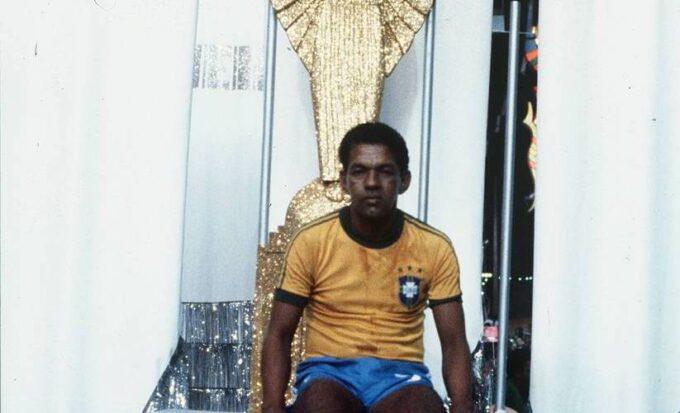In the information about the documentary “Elza & Mané – amor em linhas tortas”, Globoplay announces: “Two Brazilian geniuses. Elza and Mané formed one of the most famous couples in Brazil. A relationship that fought prejudice and was marked by love.
But make no mistake. The ad is more than simple, it is simplistic, because the documentary series is more. The images show the suffering of brilliant people in interviews and films of the time. A stingy, conservative, stupid Brazil that persecuted Garrincha and Elza for defending with deeds the legitimate field of love stands out. The soccer star allegedly abandoned seven daughters to live with Elza Soares. From my childhood, I remember hearing on the radios the hit “Volte pra casa” in the voice of Noite Ilustrada:
That was when Garrincha was a two-time soccer champion. The condemnation was implacable: “You’ve climbed too high, but please don’t fall. And never forget the one who helped you. Your true companion supported you when luck deserted you. He had to live without love, for the comfort of hypocrisy in a society where men owned mistresses, slaughtered the legal wife, but kept the family together. Under oppression. However, in this passionate meeting between Garrincha and Elza Soares there is matter and soul for a greater song of affection and passion for both. A portrait in them that belongs to all of us.
I emphasize now that director Caroline Zilberman in the documentary made the person of Elza Soares grow. In part, I believe, because she had interviews with the singer alive at the time, or because of a choice that was imposed due to the tragic figure of Elza Soares, But if we look well, by the conclusion of lives the tragic one was Mané Garrincha. And I retract the sentence, because it doesn’t matter here the comparison between Inferno 1 and Inferno 2. Both passed through the fire of Brazilian society. And, justice be done, Elza, the black singer who came from Planet Hunger, had more eloquent characteristics of Brazil’s cruel exclusion: woman, black, miserable, discriminated, oppressed to the point of infamy.
So back to the important documentary footage. I was going to say beautiful, but I suspended the impulse. It is sad and revolting. Watching it yesterday, several times I cried or remained in discreet and muffled silence. Among the characters or people who give testimonials, the best are Chico Buarque, Caetano Veloso and Zeca Camargo. Juca Kfouri too. And the worthy testimonials of the players Gerson, Afonsinho and Jairzinho.
But I’ll make a parenthesis with frankness: Ruy de Castro could have opted for the obsequious silence in many parts of the documentary. Some of his lines make us revolt because of the superior way he treats the information about Garrincha. He even goes so far as to remove the role of victim from the star in the episode of the knees bombed by injections, in order to save Botafogo’s face. That’s right, he is or was Garrincha’s biographer. But why such “impartiality” in his speeches? Why insist on the various jobs that the world’s greatest right-winger threw away? Wouldn’t it be better to point out Garrincha’s incredible maladjustment to the world? But no, it even seems that the biographer is against it. For me, it was the impression of Ruy Castro saying: “He got fucked by his own fault! The biographer gets rid of everyone to mention the jobs lost by the genius at the Brazilian Coffee Institute, at CBF, etc.etc. Everybody helped him, but he didn’t help himself. Take that! Even if in his lines there is a certain truth, this obedience to facts does not fit in the interpretation of a man who filled stadiums all over the world with joy. It is too much superior contempt, the impression that is left. I wonder what would become of a biographer who spoke of Cervantes under the view that the greatest genius of literature had prostitute sisters. Look… there are facts that, when highlighted, cease to be true. They become a distortion of the person.
And I emphasize outside the parenthesis: for those who want to know Brazil and its people, for those who want to see the genius of the people, the documentary on Globoplay is very good. I myself had a hard time watching it. I wanted it too much and that is why I paid a debit subscription to the channel, because I have no credit left. Isn’t that always the case? Those who can afford less, pay more.
And let’s get to the most important of these impressions. I think that in the story of Elza Soares and Mané Garrincha there are several documentaries or even fictions, the kind we like the most: the fiction of real life. That is, they are the motive for a vigorous novel about love and passion. In more than one moment, Elza declares her inexhaustible love for Garrincha. And the genius, in turn, only wanted to be close to his negona. Perhaps he was afraid of losing the indomitable fire of the woman he knew to another man. Plus the conflicts of alcohol, of the wicked woman who beat her “wicked” companion. Another documentary would be only about Garrincha, different from anything ever filmed until today, because the images would be read or seen through the future background of his last parade in the Mangueira samba school. How sad, my God! This is not done with a man:

Mané Garrincha. Photo: Luduopedio.
Finally, I am thinking of a third documentary only about Elza Soares, only about the infamy of the persecution of a talent, of the genius of a woman whose defects were being black, a woman, a singer with the desire to be free. But who only got her wings in her physical and personal downfalls.
The end of the end: we didn’t want to have this Brazilian tragedy. But Elzas exist and suffer until today.